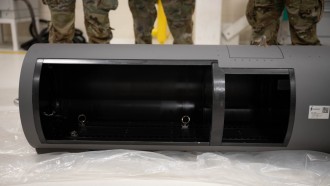NASA's Transiting Exoplanet Survey Satellite or TESS has spotted a monster black hole devouring a star. It was the first time the alien planet-hunting telescope observed such an event.
TDE
Scientists refer to the rare phenomenon as a tidal disruption event or TDE, which happens when a black hole's gravity rips gas from a star. When this happens, some of the gases are thrown into space, while the rest forms a bright disk that the black hole eventually devours.
TESS captured the cosmic phenomenon happening about 375 million light-years away in the direction of the constellation Volans (the fish).
ASASSN-19bt
TESS has been observing the star and black hole, together called ASASSN-19bt, every half-hour for months, so it was able to capture a detailed account of the star's destruction in early 2019.
For months, Thomas Holoien, an astronomer at the Carnegie Institution for Science in Washington, D.C., and colleagues used TESS data and those of other space and ground-based observatories to track ASASSN-19bt's demise.
They tracked the pair for 42 days before the TDE reached brightness in March and then for another 37 days after it faded.
Holoien said that only a few TDE have been discovered before they reached peak brightness. The recently spotted TDE had been spotted just a few days before it happened. They reported about the phenomenon in the The Astrophysical Journal on Sept. 26.
New Discoveries
The researchers found that ASASSN-19bt's host galaxy is younger and dustier compared with those that contained other TDEs. They also spotted a short blip of cooling and fading before the temperature started to level off and the TDE started to brighten to peak brilliance.
"Recent sky survey projects like ASAS-SN have revealed new features of TDEs that we have not seen before-although we don't have enough information yet to say whether these variances are common," said study author Patrick Vallely of Ohio State.
"We have so much more to learn about how they work, which is why capturing one at such an early time and having the exquisite TESS observations was crucial."









